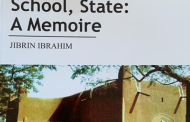Prof Attahiru Jega, the last but one National Chairperson of the Independent National Electoral Commission, (INEC) and Bayero University, Kano political scientist would wish to sit down and compose this piece. But even these preliminary thoughts of his on a piece published earlier today by Intervention embody its own provocations, especially for students of the subject matter to warrant its publication in its bare outline form. It reads:
I consider this interesting and thought provoking. Civil society needs to be properly conceptualized to understand the extent of “civic humanism” or “civic morality”, etc., or lack of these!
My instinctive reflection suggests that:
(1). Civil society is one of the three broad arenas of socioeconomic interactions and relations in a modern society, i.e. a so-called Nation-State
(2). It is the arena outside the state and the family (some say, outside the market, others say inclusive of the market; I say in many fundamental respects inclusive of the market)!
(3). It is the civic space of associational life. Hence, it’s also an arena for struggles and contestations (for and/or against the state)
(4). In a “nation-state” such as Nigeria, what is critical in determining the ‘humanism’ or ‘morality’ of the struggles of civil society against/for the state, is dictated by the balance of forces. That is, if the dominant tendency in these struggles is strong, focused, resilient and organized enough to influence and/or contain the excesses of the state, then it would positively impact the protection and defence of human dignity, which is, theoretically, a moral obligation of the state.
(5). When scholars/theorists say a strong civil society is the bulwark of democratization, they mean a vibrant, focused, well organized and ethically motivated associational life.
(6). In the Nigerian context, the vibrancy, focus and organization of associational life, in terms of ethical motivation and conduct, leaves much to be desired. That is a major explanatory factor for the failure of civil society to keep the state in check, or for the state’s ability to influence associational life and literally “capture” and emasculate civil society.




























